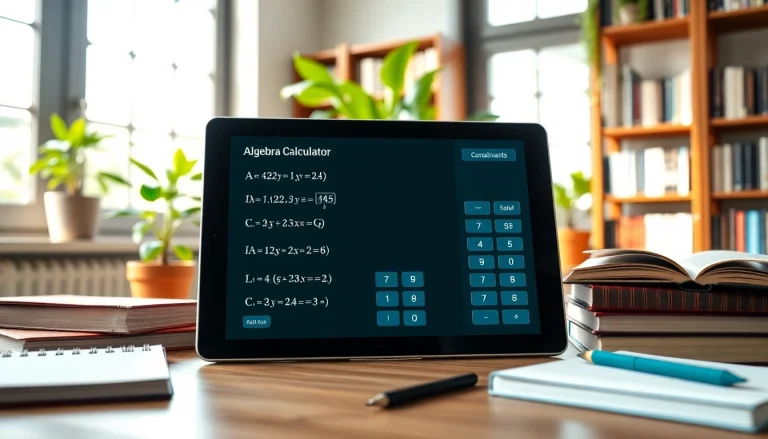
Understanding Trade Schools in Hawaii
As Hawaii continues to grow and evolve, so does the need for skilled labor across various sectors. In this context, trade schools in Hawaii have emerged as vital institutions that prepare individuals for the job market. They provide specialized, vocational training that equips students with practical skills in specific trades, ultimately leading to successful careers.
What Are Trade Schools?
Trade schools, also known as vocational or technical schools, focus on practical, hands-on training to prepare students for careers in skilled trades and technical fields. These institutions balance classroom learning with practical exercises, ensuring that graduates not only understand theoretical concepts but also have the competencies to execute them in real-world situations. Programs often cover a wide range of fields, including healthcare, construction, automotive, culinary arts, and various engineering trades.
The Importance of Vocational Training
Vocational training is crucial for several reasons. First and foremost, it addresses skill gaps in the labor market by producing qualified professionals who meet local employers’ needs. Trade programs often align their curricula with industry standards, ensuring that students acquire the relevant skills and knowledge required in specific job roles.
Secondly, vocational training provides an alternative path for students who may not want to pursue a four-year college degree. By enrolling in trade schools, students can enter the workforce more quickly, potentially saving on tuition costs and accumulating fewer student loans. This can lead to a more immediate return on investment as many trade jobs offer competitive salaries.
Benefits of Attending Trade Schools in Hawaii
Attending a trade school in Hawaii offers unique benefits due to the state’s distinct geographic and economic landscape. Here are some of the major advantages:
- High Demand for Skilled Labor: With construction booms and the ongoing need for skilled trades, graduates from Hawaii’s trade schools find themselves in high demand.
- Local Opportunities: Many training programs partner with local businesses, facilitating job placements and apprenticeships that can lead to permanent employment post-graduation.
- Cultural Relevance: Trade schools in Hawaii often integrate Native Hawaiian cultural elements into their programs, enriching the learning experience for students.
- Practical Learning Environment: Students benefit from a hands-on learning environment that emphasizes practical skills applicable in local industries.
Top Trade Schools in Hawaii
Hawaii boasts several reputable trade schools known for their quality education and commitment to student success. Here are some of the top institutions:
Honolulu Community College: Focus on Construction Trades
Honolulu Community College (HCC) is prominently recognized for its diverse range of programs focused on construction trades. Students can pursue diplomas and certificates in areas such as carpentry, electrical installation, plumbing, and welding. HCC emphasizes hands-on learning, where students can engage in real projects that exemplify what they may encounter in the field.
One of HCC’s notable programs is its welding technology course, which not only teaches technical skills but also includes certification options that are valued in the industry. Additionally, HCC collaborates with local companies to ensure job placements for graduates, further enhancing their employability.
Kapiolani Community College: Diverse Programs
Kapiolani Community College (KCC) offers a broad array of vocational programs beyond traditional trades, including culinary arts, hospitality, and health sciences. Its culinary program has been particularly noted for its comprehensive approach, blending technical skill development with business and management principles. KCC also has strong partnerships with local hotels and restaurants, ensuring students gain practical experience through internships.
Furthermore, KCC emphasizes student support, offering counseling, financial aid, and career services that help guide students toward successful futures in their chosen fields.
Hawaii Community College: Comprehensive Training
Hawaii Community College (HawCC) is known for its comprehensive training programs that span various industries, including agriculture, automotive technology, and sustainable energy. The college offers both short-term certificates and associate degrees, allowing students to customize their educational paths based on career goals.
One of the standout programs is the sustainable energy course, which prepares students for careers in renewable energy sectors—a growing field in Hawaii’s push towards sustainability. Graduates from HawCC are equipped with skills that are in line with contemporary industry trends, allowing them to contribute positively to the Hawaiian economy.
Choosing the Right Trade School
When selecting a trade school, prospective students should consider several key factors to make informed decisions that align with their career aspirations.
Factors to Consider When Selecting a School
Choosing the right trade school requires careful thought. Factors to consider include:
- Program Offerings: Ensure the school offers programs that align with your career interests and goals.
- Facilities and Resources: Investigate whether the school has modern facilities and up-to-date equipment that mirrors what one would use in the industry.
- Location: Consider if the school’s location is convenient for commuting and if it has strong ties to local employers for internship and job placement opportunities.
- Student Support Services: Access to counseling, tutoring, and career services can play a crucial role in your overall success.
How to Evaluate Program Offerings
Evaluating program offerings involves looking not only at the curriculum but also at the outcomes associated with the program. Research graduation rates, job placement statistics, and alumni reviews. Many schools offer an outline of their program that provides insight into what students will learn, their hands-on training opportunities, and any certifications that can be obtained.
Moreover, consider reaching out to current students or alumni for their perspectives on how well the program prepared them for the workforce.
The Role of Accreditation in Your Decision
Accreditation is a crucial factor when selecting a trade school. Accredited programs meet established educational standards, which can impact your eligibility for federal financial aid and the recognition of your credentials by employers. Check if the school is accredited by a recognized accrediting agency, and inquire about the specific programs that hold accreditation.
Additionally, accredited programs often have better industry ties that lead to fulfilling employment opportunities for graduates.
Financial Aspects of Trade Schools in Hawaii
Considering the financial implications of attending trade school is essential for anyone looking to further their education. Here are some key points to understand about costs and available aid.
Tuition Costs and Financial Aid Options
The cost of attending trade schools in Hawaii can vary significantly based on the institution and program chosen. Typically, tuition ranges from a few thousand dollars to upwards of $20,000 for full programs. In-state students often receive lower tuition rates than out-of-state students.
Many schools offer financial aid options, including state and federal grants, low-interest loans, and scholarships that can alleviate the financial burden. Prospective students should complete the FAFSA (Free Application for Federal Student Aid) to explore their options.
Scholarships and Grants for Students
Scholarships and grants can significantly reduce the total cost of attending trade school. Numerous local organizations, businesses, and educational foundations provide scholarships targeted specifically at trade school students. For example, the University of Hawaii Foundation and various industry-specific organizations often offer financial incentives based on need or merit.
Additionally, some employers may provide tuition assistance for employees pursuing education in relevant fields as part of employee development initiatives.
Budgeting for Your Trade School Journey
Budgeting for trade school involves more than just tuition. Students need to consider additional costs such as textbooks, materials, uniforms, and living expenses. Creating a comprehensive budget can help students manage their finances throughout their educational journey, ensuring they cover all necessary expenses while avoiding unnecessary debt.
Students might also explore part-time job opportunities, flexible scheduling, or internships that can provide both financial assistance and valuable experience in their field.
Career Opportunities After Trade School
Completing a trade school program opens doors to various career opportunities, often in high-demand fields. Let’s explore some of these potential careers and how to progress in them.
In-Demand Careers in the Trades
Many trades are experiencing unprecedented demand for skilled workers. Top in-demand careers in Hawaii include:
- Electricians: With ongoing construction and renovation projects, skilled electricians are critical for both residential and commercial properties.
- Plumbers: Plumbing remains a crucial service, ensuring homes and businesses have functioning water systems and drainage.
- HVAC Technicians: The need for heating, ventilation, and air conditioning technicians continues to rise, especially in temperate regions.
- Welders: As manufacturing sectors evolve, welders are needed for construction, automotive, and metal fabrication industries.
Graduates can expect strong job prospects and competitive salaries as demands for skilled workers continue to increase.
Advancing Your Career with Additional Certifications
After entering the workforce, many trade school graduates choose to pursue additional certifications to enhance their skills and career prospects. Obtaining certifications validates a worker’s knowledge and expertise, making them more appealing to employers and potentially leading to advancement opportunities.
Certifications vary by trade; for instance, HVAC technicians might pursue EPA certification, whereas electricians may seek licensing from their state. Continuous education ensures that professionals stay updated on technological advancements within their fields.
Apprenticeship Programs and Real-World Experience
Apprenticeships provide an invaluable opportunity for trade school graduates to gain real-world experience while earning a wage. Many trade schools in Hawaii have partnerships with local unions and employers to facilitate apprenticeship placements.
Engaging in apprenticeship programs allows students to apply what they’ve learned in school to actual work environments, thereby increasing their confidence and technical skills. Moreover, apprenticeships often lead to full-time employment upon completion, offering a practical path to establishing a long-term career.
Conclusion
The landscape of trade education in Hawaii is rich with opportunity for individuals seeking a prosperous career path outside the traditional four-year college track. With numerous reputable trade schools in Hawaii offering specialized training programs, students can find a path that fits their interests and career goals. By considering factors such as the types of programs, financial constraints, and future job prospects, individuals can make informed decisions for their futures in skilled trades.






